On April 17–18, the Mittal Institute held its Annual Symposium at the Barker Center on the Harvard campus to a standing-room-only crowd of faculty, fellows, students, and friends of the Mittal Institute. At kickoff on Thursday evening, Prof. Tarun Khanna, Prof. William C. Kirby, and Prof. Arthur Kleinman reflected on the 15-year journey of the Mittal Institute. On Friday, renowned journalists, scholars, and Distinguished Artist Fellow Naiza Khan engaged in lively discussion and debate on media, climate, and arts in South Asia. Read more about Friday’s full-day event below!
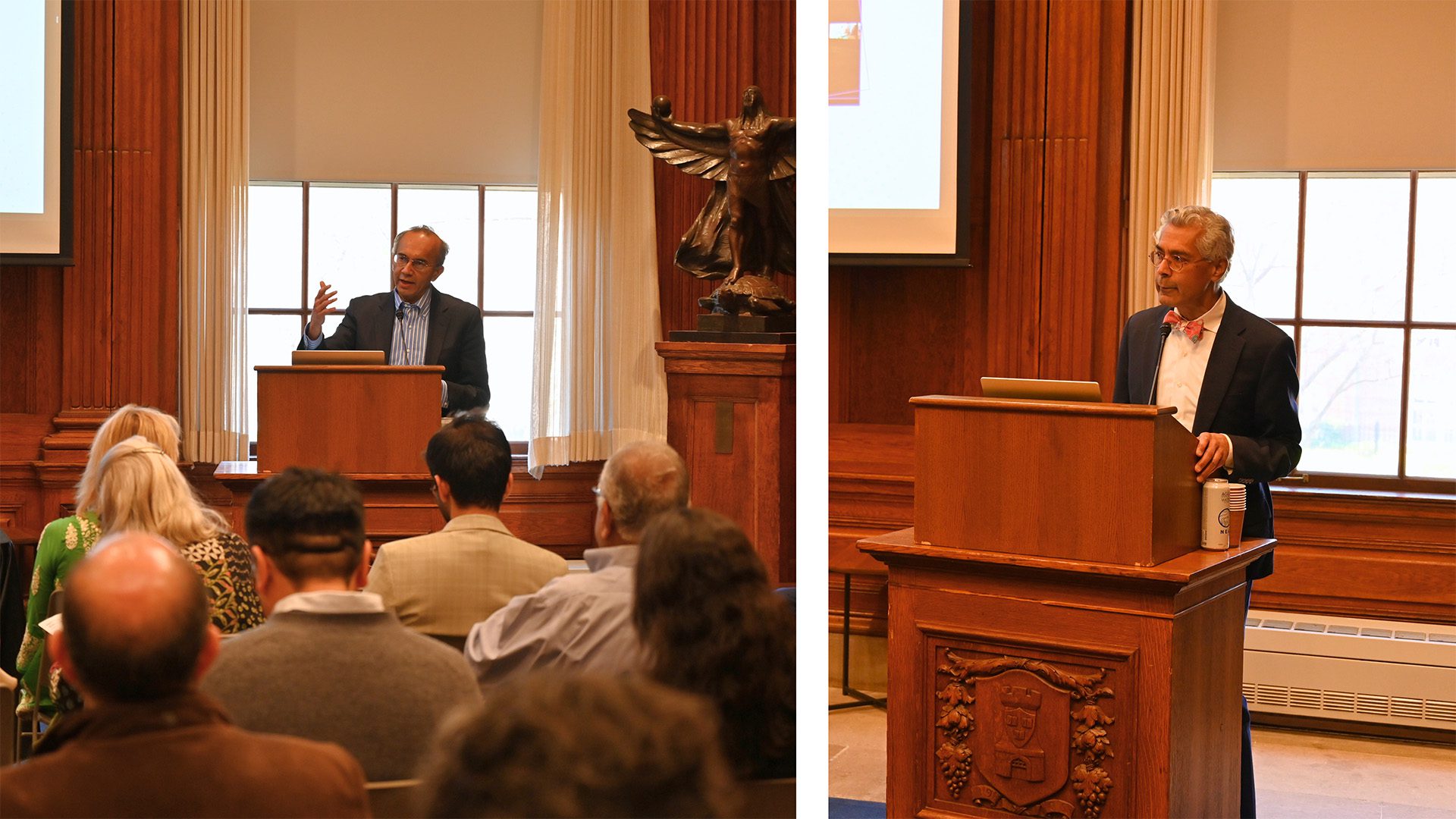
Image, left: Tarun Khanna, Mittal Institute Faculty Director. Image, right: Hitesh Hathi, Mittal Institute Executive Director
Friday morning was dedicated to discussions about the changing media landscape in South Asia. It featured eight journalists and media experts from India, Pakistan, and Bangladesh, four of whom joined in person and four via Zoom. Each responded differently to the overarching question asked by an audience member: Is journalism dying – or just reinventing itself?
Key themes that emerged:
- Navigating rapid changes in media consumption
- Changing working conditions in journalism across South Asia and the world
- Eroding standards in journalism vs. opportunities for new voices as podcasts and social media enter the journalism space
- New media giving voice to historically excluded groups, such as Dalits, women, or Pashtuns
- New challenges, such as dependency on search algorithms, as the media economy changes
- Difficulties of reporting across borders in South Asia
- Significant differences between Bangladesh, India, and Pakistan in the political and cultural landscape for reporting
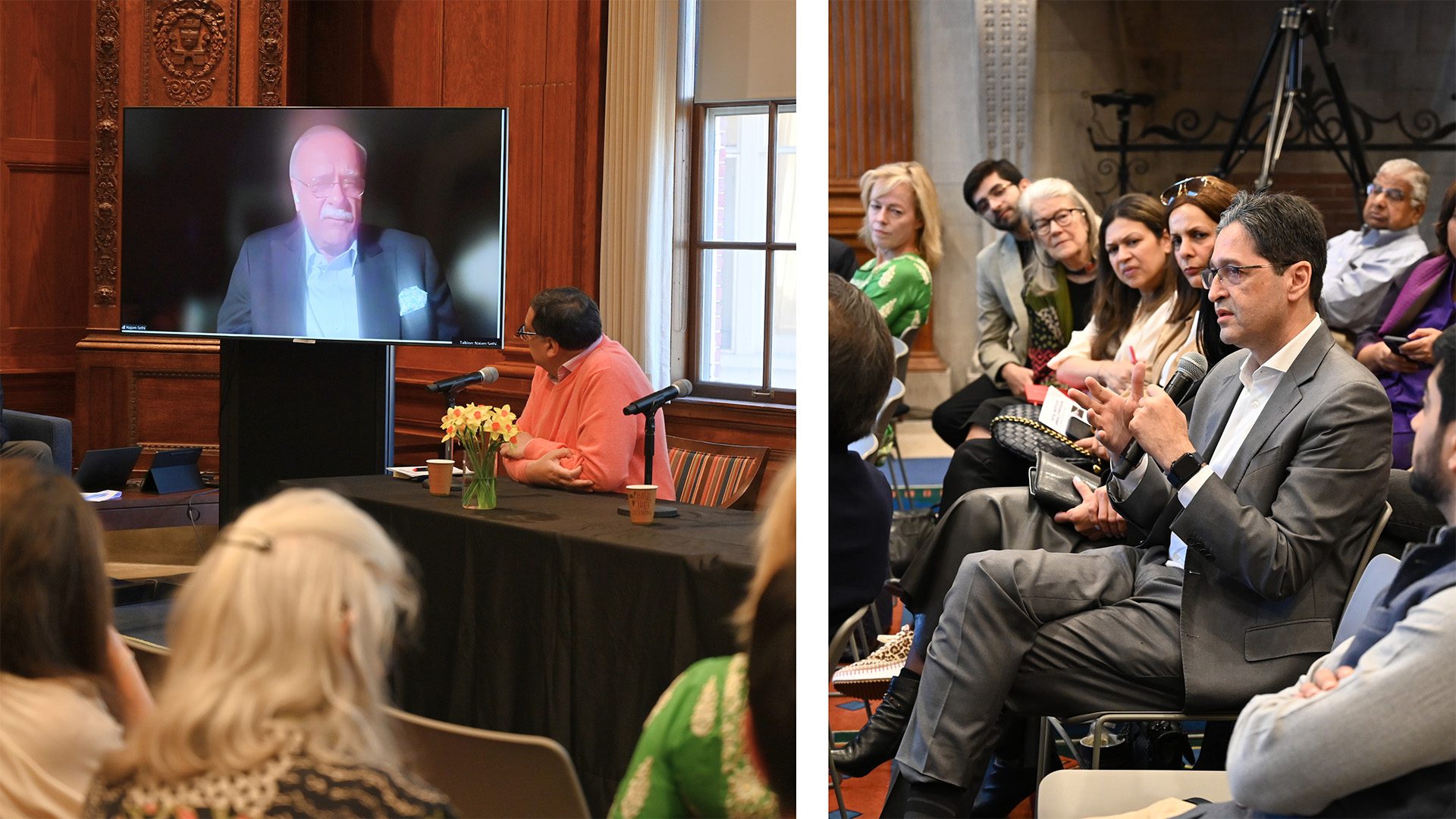
Image, left: Najam Sethi, founder of The Friday Times and Vanguard Books, has been a journalist for over 50 years in Pakistan. He joined the symposium via Zoom and was in conversation with Adil Najam, Professor of International Relations and Earth and Environment at Boston University.
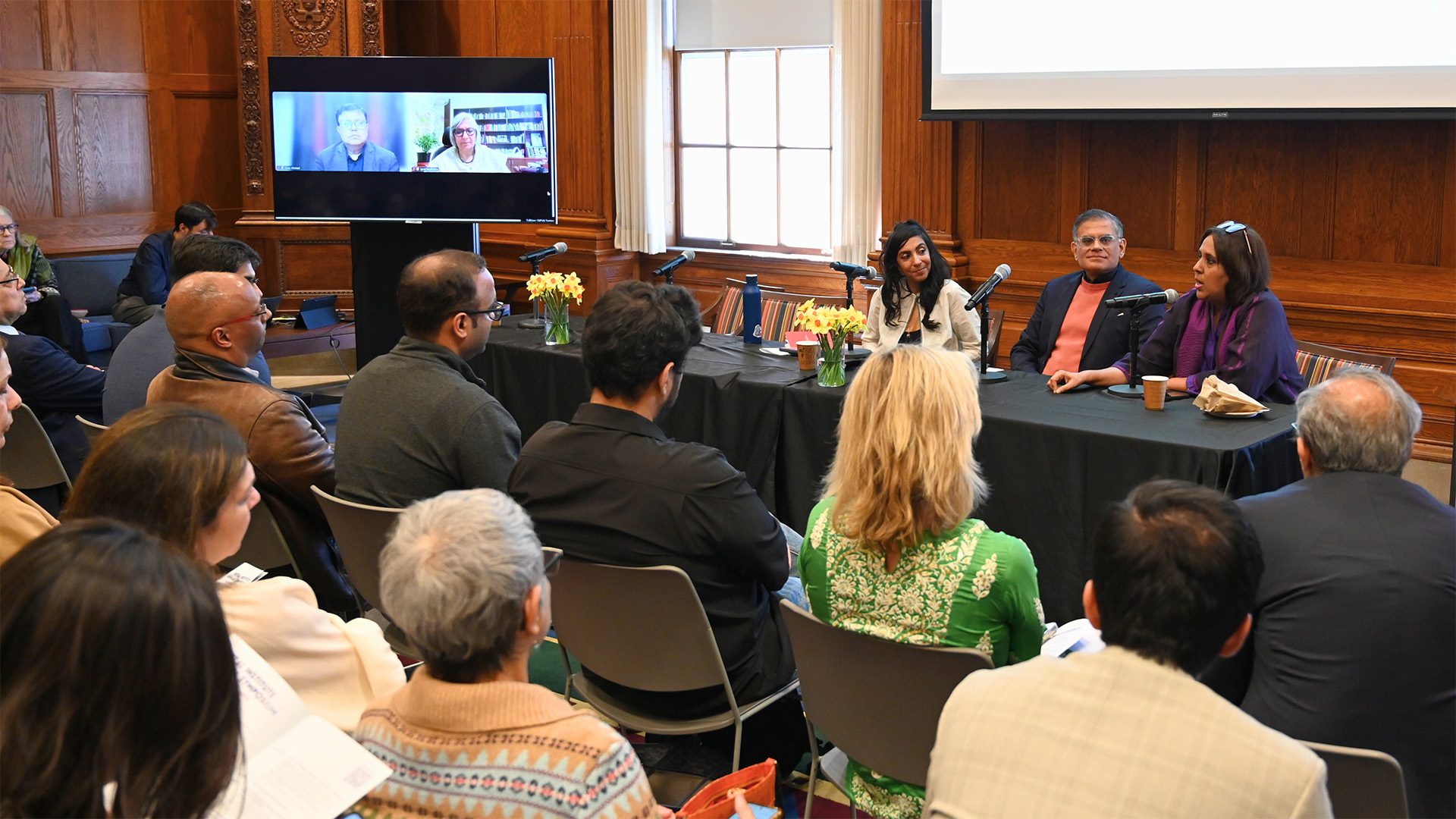
In a group discussion moderated by Prerna Singh, Mahatma Gandhi Associate Professor of Political Science and International and Public Affairs at Brown University, journalists from India, Pakistan, and Bangladesh discussed how to cover key issues across South Asia. The panel included Reaz Ahmad, Editor of the Dhaka Tribune; Barkha Dutt, an Indian television journalist and author; Jyoti Malhotra, the first female Editor-in-Chief of The Tribune, an Indian newspaper; and Raza Rumi, editor of The Friday Times in Pakistan and chief editor of the online media platform Naya Daur Media.
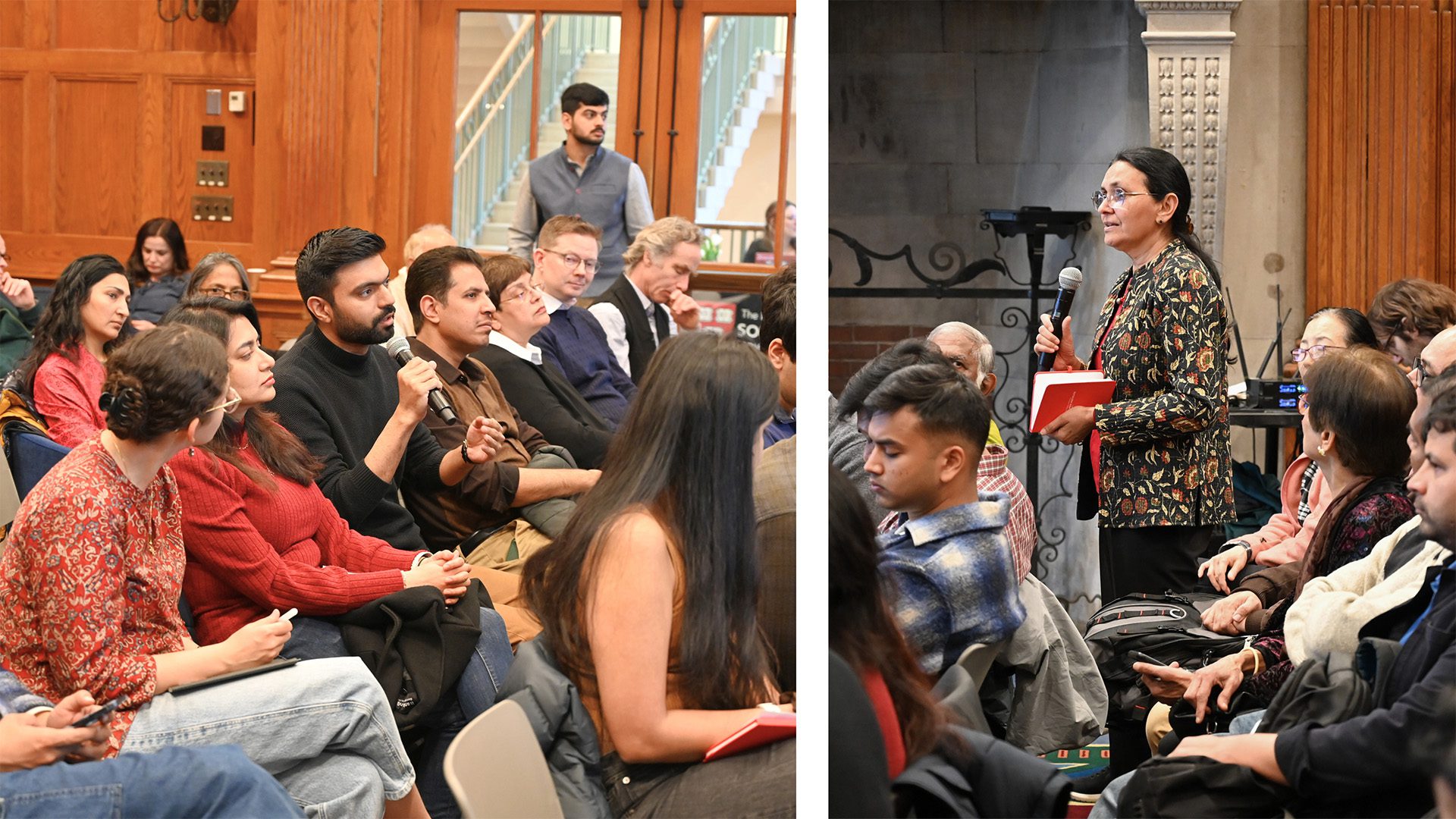
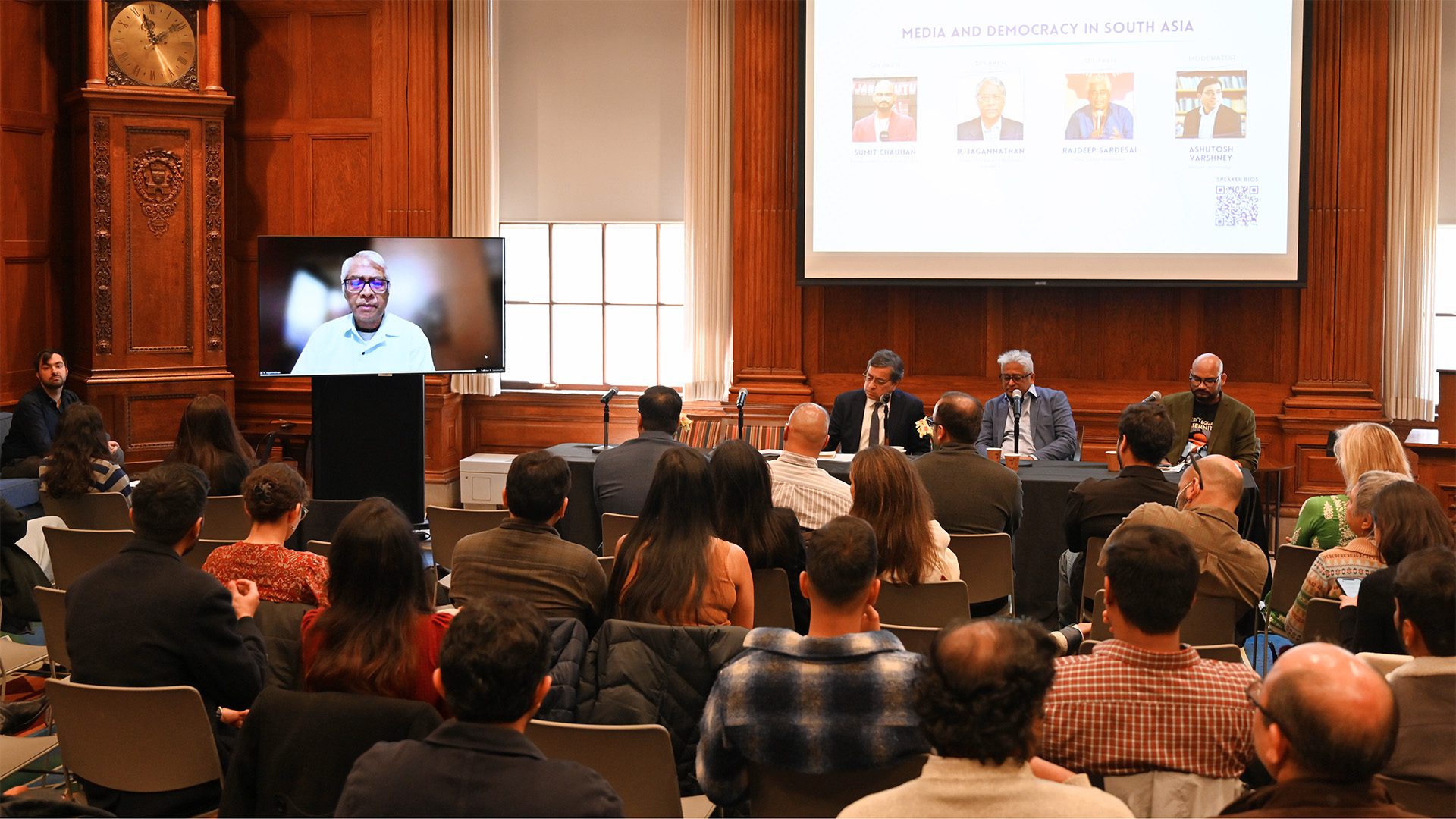
Sumit Chauhan, journalist and founding editor at TheNewsBeak & TheShudra; R. Jagannathan, author, journalist, and columnist; and Rajdeep Sardesai, consulting editor and anchor of India Today Television, discussed the relationship between media and democracy in South Asia, moderated by Ashutosh Varshney, Director of the Saxena Center for Contemporary South Asia and Sol Goldman Professor of International Studies and the Social Sciences at Brown University.
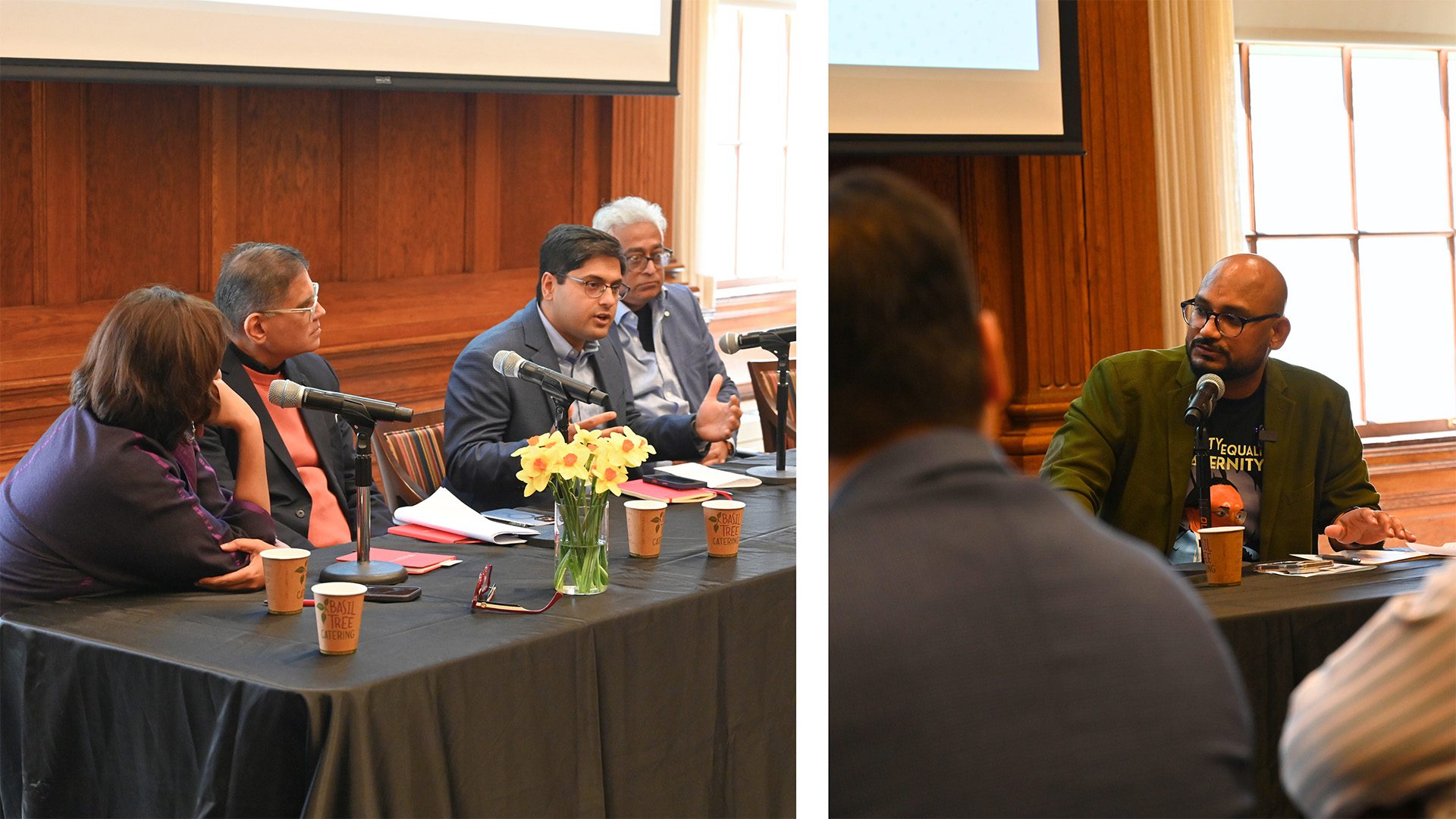
The fourth and last media panel focused on Politics, Economics, Security — South Asia in the World, moderated by Gautam Nair, Assistant Professor of Public Policy at Harvard Kennedy School. It included journalists Sumit Chauhan, Barkha Dutt, Raza Rumi, and Rajdeep Sardesai.
In the afternoon, four attendees of the recent conference co-hosted by the Mittal Institute in New Delhi, ‘India 2047: Building a Climate-Resilient Future’, summarized discussions from the four-day convening. Sharon Block, Professor of Practice and Executive Director of the Center for Labor and a Just Economy at Harvard Law School, represented the conference track that discussed the impacts of climate change on work environment and labor productivity. She highlighted how workers, including women, need access to water, rest, and shade to endure increasingly hot conditions. Bhargav Krishna, convenor at the Sustainable Futures Collaborative and representing the conference track on the impacts of climate change on health, explained that detailed data on health-related deaths in India is missing. Peter Huybers, Professor of Earth and Planetary Sciences at Harvard University, who represented the conference track on climate science, discussed the interconnection between humidity, irrigation, air pollution, and heat. David Jones, A. Bernard Ackerman Professor of the Culture of Medicine, Harvard Medical School, who also participated in the New Delhi conference, moderated the session.
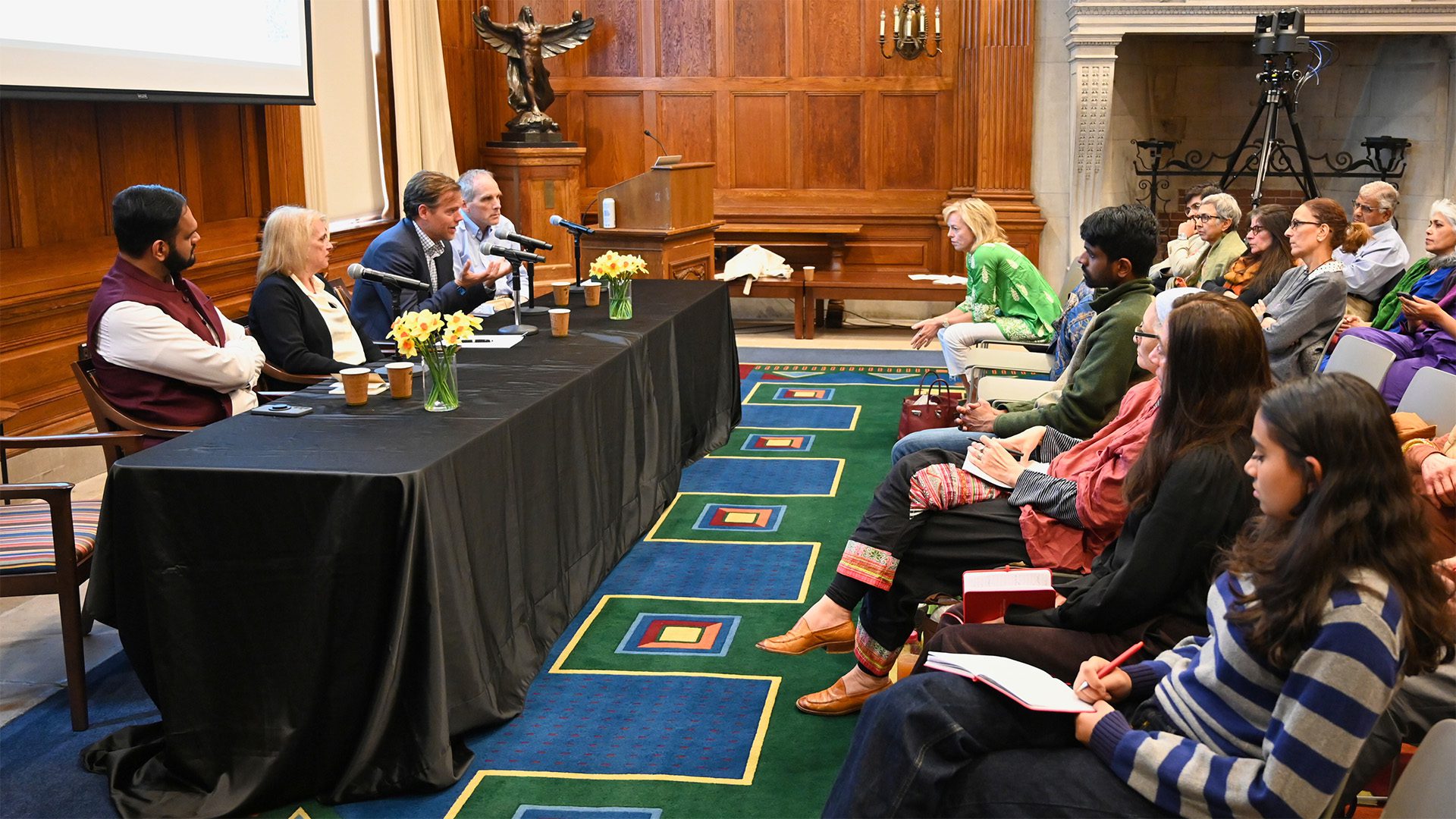
Panelists of the session ‘Climate Adaptation in South Asia: Insights from the India 2047 Conference,’ from left to right: Bhargav Krishna, Sharon Block, Peter Huybers, and David Jones.
The symposium next featured the short film “Mapping Water” by Naiza Khan, a Pakistani artist and the Mittal Institute’s second Distinguished Artist Fellow. The film debuted in 2023 and shows the artist developing maps of cities she is recounting, indicating her diverse, multidisciplinary practice based between London and Karachi. After the screening, Khan was in conversation with Jinah Kim, George P. Bickford Professor of Indian and South Asian Art and Professor of South Asian Studies at Harvard University, and answered questions from the audience about how to choose the perfect material for her ideas and how she became interested in themes of migration and war.
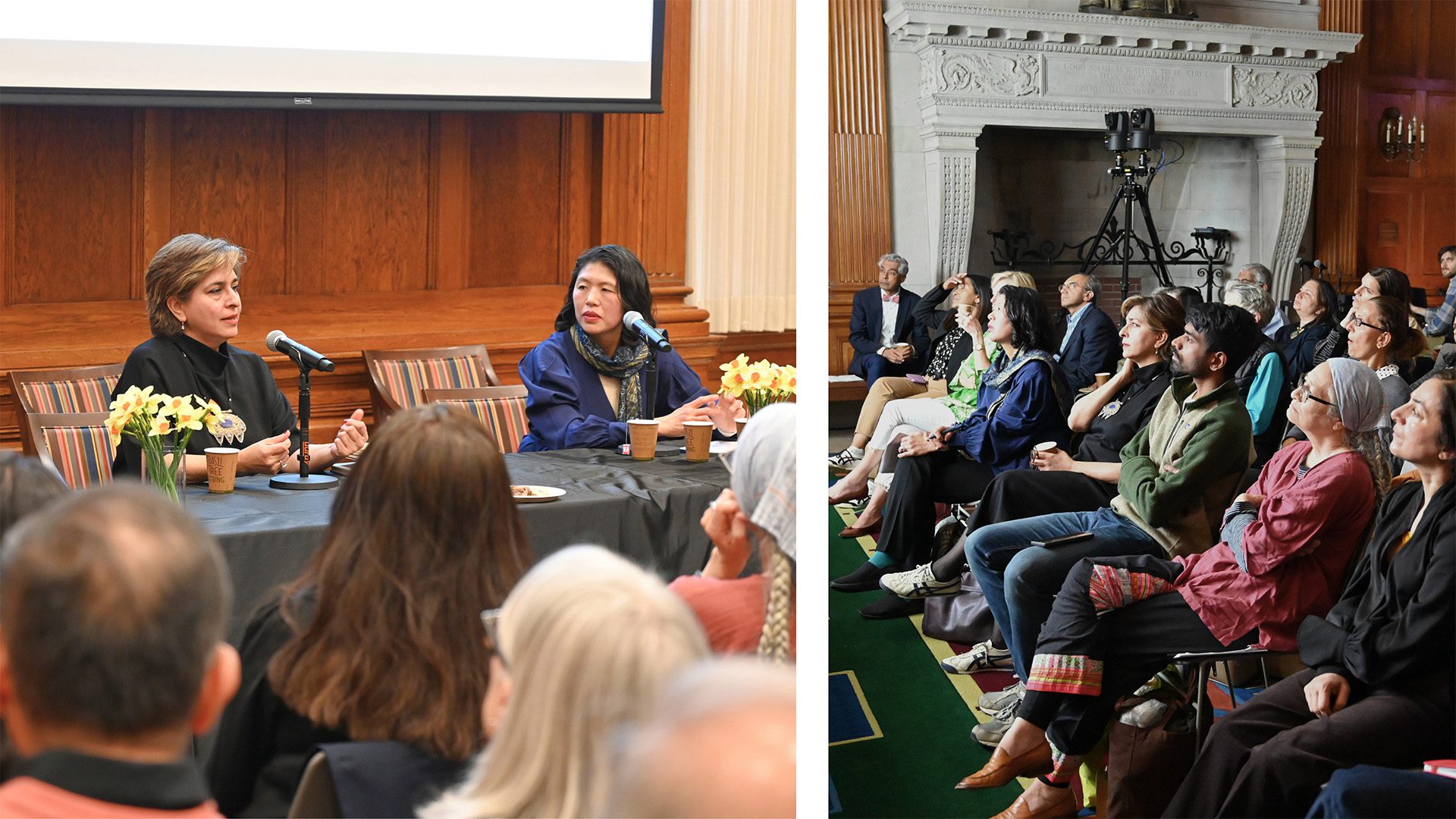
Image, left, from left to right: Naiza Khan, Jinah Kim. Image, right: The audience watches Naiza Khan’s short film ‘Mapping Water.’
The last panel of the symposium featured Tarun Khanna, Jorge Paulo Lemann Professor at the Harvard Business School, Faculty Director of the Mittal Institute, and Diana L. Eck, Professor of Comparative Religion and Indian Studies, Emerita, Faculty of Arts and Sciences and Harvard Divinity School. They discussed the Mittal Institute’s journey, from the pluralism project established by Prof. Eck in 1991, the major study of the 2013 Kumbh Mela, to the latest and ongoing research on climate adaptation in South Asia. In his reflections, Tarun Khanna highlighted the potential of the Institute to unite and bridge scholarship across borders and disciplines. The discussion marked Khanna’s last event as the Faculty Director of the Mittal Institute before stepping down at the end of the academic year. Starting in July 2025, Diana L. Eck will become the interim Faculty Director for one year.
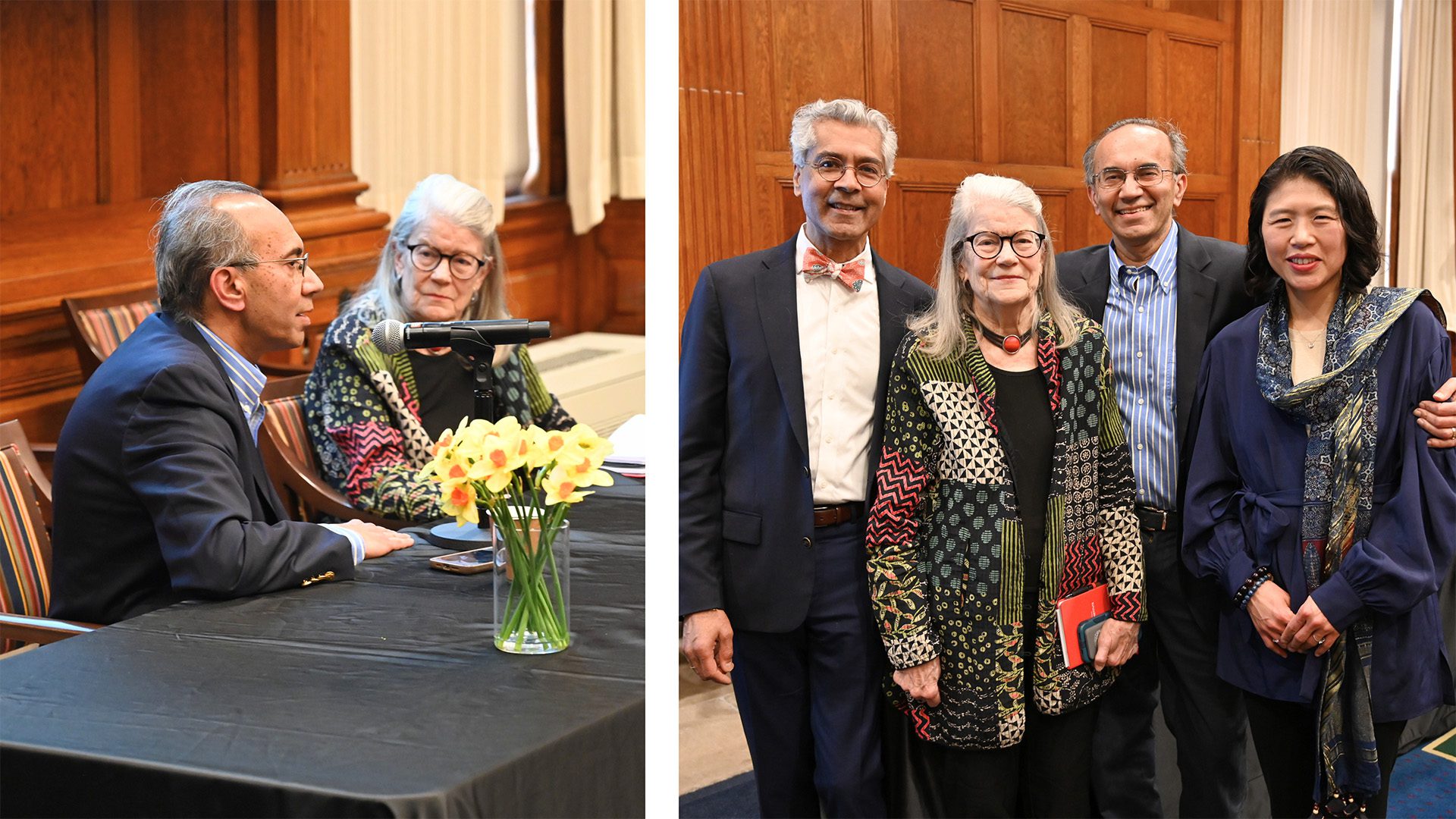
Image, left, from left to right: Tarun Khanna, Diana Eck. Image, right, from left to right: Hitesh Hathi, Diana Eck, Tarun Khanna, Jinah Kim
Photos and text by Bettina Wyler, Mittal Institute Communications Manager




